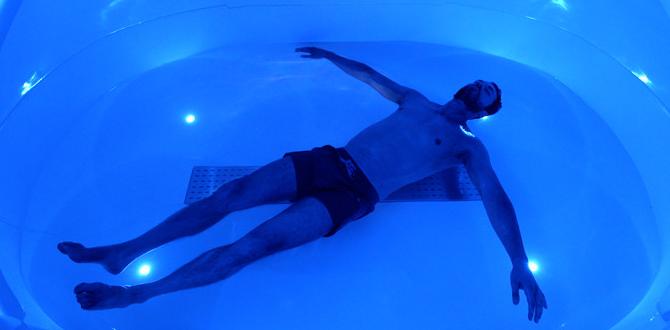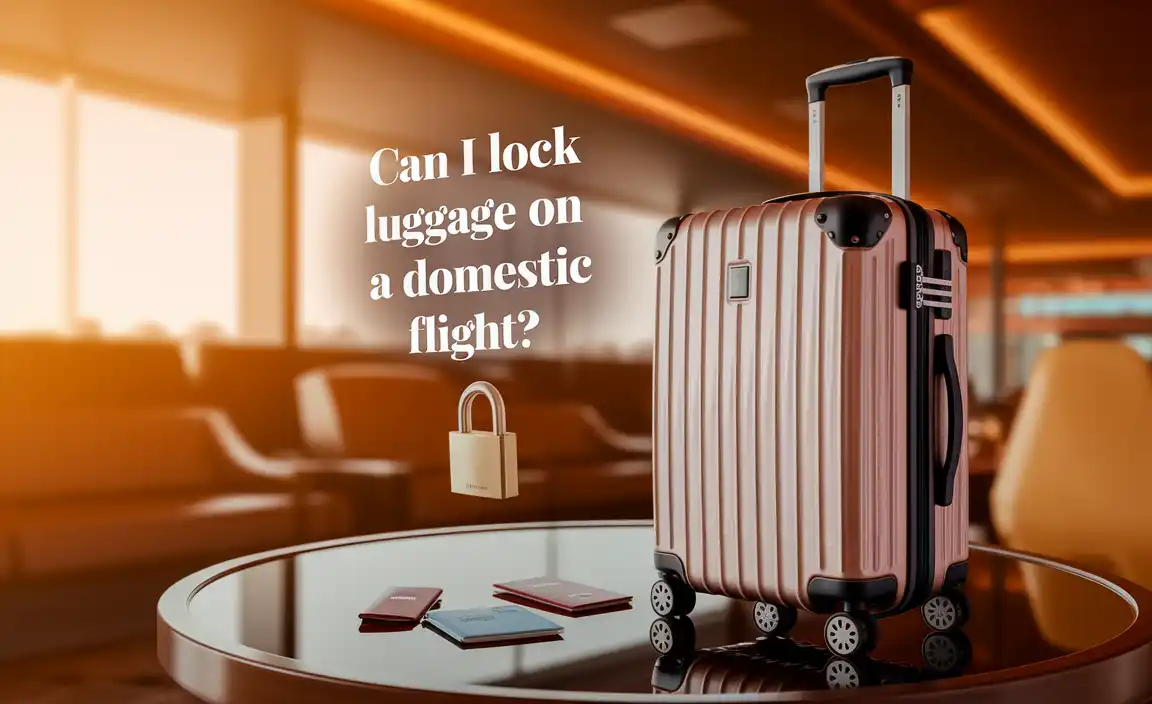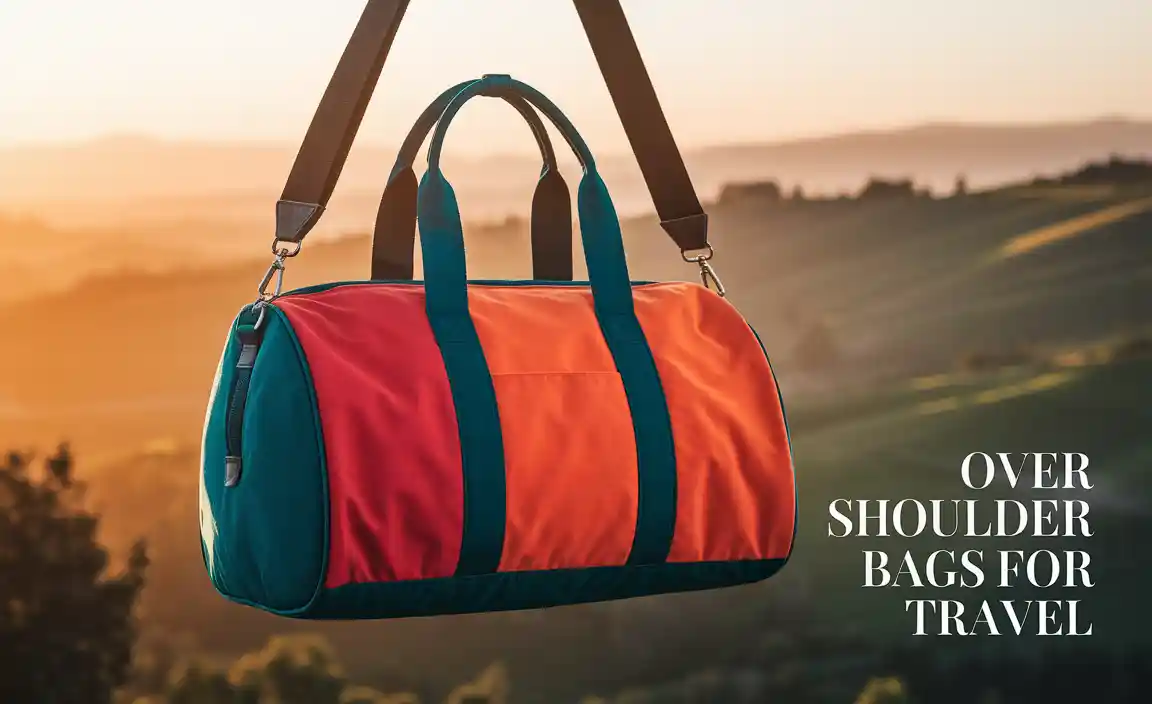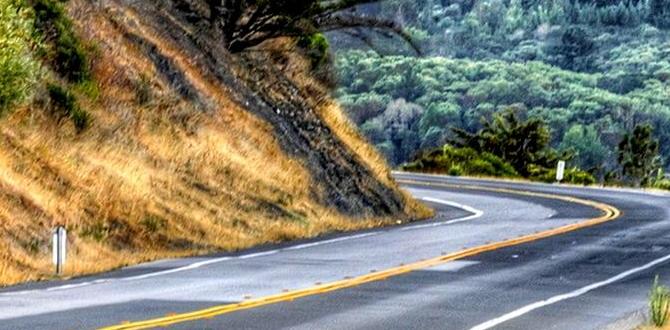Basque Country luxury on a budget is achievable with smart planning, focusing on affordable yet authentic experiences like free cultural sites, local eateries, and strategic transport. This guide provides practical tips to enjoy the region’s splendor without overspending.
Dreaming of the stunning landscapes and delicious food of the Basque Country but worried about the cost? You’re not alone! Many people think a luxurious getaway means an empty wallet. But I’m here to show you that experiencing the best of Basque Country luxury on a budget is absolutely possible. It’s all about knowing where to look and how to make your Euros stretch further, without sacrificing the magic of the region. Let’s dive into how you can enjoy this incredible corner of the world beautifully and affordably.
Discovering Basque Country Luxury on a Budget: Your Ultimate Guide
The Basque Country, a region straddling the border of Spain and France, offers a unique blend of rugged coastlines, vibrant cities, and a rich culinary scene. It’s a place where ancient traditions meet modern sophistication, creating an allure that’s hard to resist. While perceptions of luxury often come with hefty price tags, the truth is that many of the Basque Country’s most rewarding experiences are surprisingly accessible. This guide is designed to help you navigate the region, uncovering its treasures while keeping your budget firmly in mind. We’ll explore how to save on accommodation, savor local flavors, explore picturesque towns, and even travel comfortably and confidently, no matter your personal needs.
Smart Savings on Basque Country Stays
Where you lay your head at night can be a significant part of your travel budget. Thankfully, the Basque Country offers a variety of accommodation options that can cater to both comfort and cost-consciousness. Moving beyond the five-star hotels, you can find charming and affordable alternatives.
Budget-Friendly Accommodation Options:
- Guesthouses (Pensiones/Hostales): These are often family-run and provide a more personal touch. They are typically cleaner and more comfortable than hostels but significantly cheaper than hotels.
- Apartments and Airbnb: Renting an apartment can be a fantastic way to save money, especially if you’re traveling with family or a group. You can also save on food by preparing some meals yourself. Look for places slightly outside the absolute city center for better rates.
- Rural Houses (Casas Rurales): For a truly immersive experience, consider staying in a rural house. These offer a peaceful escape and often come with beautiful scenery and a chance to connect with local life. They can be very cost-effective, particularly for longer stays.
- Hostels: While often associated with backpackers, modern hostels offer private rooms that can be a comfortable and budget-friendly option for couples or solo travelers. Many also have communal kitchens for self-catering.
When booking, always read recent reviews to ensure cleanliness and good service. Consider locations that offer easy access to public transport, even if they’re not in the heart of the most touristy areas. A short bus or train ride can save you a considerable amount.
Savoring Basque Flavors Without Breaking the Bank
The Basque Country is world-renowned for its gastronomy. From Michelin-starred restaurants to humble pintxos bars, the food is an integral part of the experience. Fortunately, you don’t need a five-star budget to eat like royalty.
Gourmet on a Budget:
- Pintxos Hopping: Instead of a formal sit-down meal, embrace the pintxos culture. These are small, delicious bites, similar to tapas, typically served on a piece of bread and held together with a skewer. Bar hopping for pintxos is not only an authentic experience but also a budget-friendly way to sample a variety of local flavors. Aim for bars away from the main tourist squares for better prices and more local crowds.
- “Menu del Día”: Many restaurants offer a “Menu del Día” (menu of the day) for lunch on weekdays. This is usually a set menu with a starter, main course, dessert, and a drink (often wine or water), all at a fixed, affordable price. It’s an excellent way to enjoy a multi-course meal for a fraction of the à la carte price.
- Local Markets: Explore the local food markets, such as Mercado de la Bretxa in San Sebastián or Mercado de la Ribera in Bilbao. They are vibrant hubs where you can find fresh produce, local cheeses, cured meats, and seafood. You can assemble a delightful picnic or grab ready-to-eat snacks.
- Sidrerías (Cider Houses): Particularly in Gipuzkoa, visiting a sidrería offers a rustic and fun dining experience. You’ll typically enjoy a set menu of traditional Basque dishes, like grilled steak and cod omelets, with unlimited cider poured directly from large barrels. It’s a social and memorable event that offers great value.
Don’t be afraid to ask locals for their recommendations. They often know the best hidden gems where you can find incredible food at reasonable prices.
Exploring the Basque Country’s Charms: Free and Affordable Activities
The beauty of the Basque Country lies not just in its gourmet offerings, but also in its breathtaking landscapes and rich cultural heritage, much of which can be enjoyed for free or at a very low cost.
Cost-Free and Low-Cost Adventures:
- Wander Through Old Towns: The Casco Viejo (Old Town) in cities like Bilbao and San Sebastián is a treasure trove of history, architecture, and atmosphere. Simply strolling through the narrow, winding streets, admiring the buildings, and soaking in the ambiance is an experience in itself.
- Beach Time: The Basque coastline boasts some stunning beaches. La Concha in San Sebastián is famous for its beauty, but you can also find equally lovely and less crowded options like Zurriola beach (popular with surfers) or the beaches near Zarautz. Pack a towel and enjoy the sun and sea for free.
- Hiking and Nature Trails: The Basque Country is incredibly green and offers numerous opportunities for hiking. The Camino de Santiago passes through parts of the region, and there are countless local trails. The coastal path, known as the Euskal Kostaldeko Bidea, offers spectacular ocean views. Many of these trails are well-marked and accessible via public transport.
- Public Art and Architecture: Bilbao is famous for the Guggenheim Museum, but its transformation also includes impressive public art and striking modern architecture that can be admired from the outside. Take a walk along the Nervión River to appreciate these modern marvels.
- Churches and Cathedrals: Many of the region’s historic churches and cathedrals are free to enter or have a small donation requested. These often house beautiful art and offer a glimpse into the area’s spiritual history.
Always check local tourism websites for free walking tours. While tips are customary, they are a fantastic way to get an overview of a city from a knowledgeable local guide.
Navigating the Basque Country Affordably
Getting around the Basque Country doesn’t have to be expensive. Strategic planning of your transportation can lead to significant savings.
Smart Transportation Tips:
- Public Transport is Your Friend: Both Euskotren (a regional train network) and various bus companies (like Bizkaibus and Lurraldebus) connect most towns and cities efficiently and affordably. Purchase a rechargeable transport card (like the Barik card in Bizkaia) if you plan on using public transport frequently; these often offer discounted fares.
- Walk Whenever Possible: Many Basque cities and towns are incredibly walkable. Exploring on foot allows you to discover hidden gems and soak in the atmosphere at your own pace. Wear comfortable shoes – essential for any traveler! If you’re traveling with young children or require extra comfort and support, consider packing discreet adult or child diapers for added peace of mind during longer excursions. This ensures you can focus on exploring without worry. For reliable options, companies like Depend or Tena offer travel-friendly products.
- Consider Regional Flights for Longer Distances: If you’re traveling between distant points within the Basque Country or to/from other regions of Spain or France, check budget airlines. However, weigh the cost of flights against the convenience and cost of trains or buses, especially when factoring in airport transfers.
- Car Rental (Use Sparingly): While a car offers flexibility, parking can be expensive and challenging in city centers. If you decide to rent a car, consider picking it up outside major cities or using it only for exploring rural areas where public transport is less frequent.
For detailed public transport information, check out the official sites: Euskotren and local bus operators. Planning your travel routes in advance can help you find the most economical options.
Comfort and Convenience: Travel Accessories That Matter
Travel is about enjoying the journey, and sometimes, the right accessories can make all the difference, particularly when you need to manage personal care needs discreetly and comfortably. For every traveler, especially those who require adult or child diapers, ensuring comfort and minimizing stress is paramount to enjoying the Basque Country.
Essential Comfort Items:
- Discreet Diapering Solutions: For adults or children who need diaper protection, choosing the right product is key. Look for options that are slim-fitting, highly absorbent, and odor-controlling for maximum discretion and confidence. Brands like Abena, Tranquility, or even well-known drugstore brands often have specialized adult briefs or pads designed for extended wear. For children, reputable brands like Huggies Overnight or Pampers Swaddlers offer superior protection for travel days. Being prepared can turn a potentially stressful situation into a non-issue, allowing everyone to focus on the adventure.
- Comfortable Footwear: As mentioned, walking is key. Invest in a good pair of supportive walking shoes or sneakers.
- Lightweight Backpack or Daypack: Essential for carrying water, snacks, a light jacket, and any personal items you might need throughout the day.
- Reusable Water Bottle: Stay hydrated and save money by refilling your bottle from public fountains or your accommodation.
- Portable Power Bank: Keep your phone charged for navigation, photos, and staying connected without searching for an outlet.
- Travel-Sized Toiletries: Pack only what you need to save space and weight. Don’t forget essentials like sunscreen, especially if you plan on spending time outdoors.
Having these items can significantly enhance your comfort and preparedness, allowing you to fully immerse yourself in the Basque experience without added stress.
Sample Budget Itinerary: 5 Days in the Basque Country
Here’s a sample itinerary to give you an idea of how luxurious Basque Country on a budget can look:
Day 1: Arrival in Bilbao & Artistic Immersion
- Arrive at Bilbao Airport (BIO). Take a public bus (e.g., Bizkaibus A3247) to the city center (approx. €3).
- Check into a budget-friendly apartment or hostel in the Indautxu or Deusto neighborhood.
- Afternoon: Admire the Guggenheim Museum from the outside and explore the riverside architecture. Walk through the Zubizuri Bridge designed by Santiago Calatrava.
- Evening: Enjoy pintxos hopping in the Casco Viejo. Budget around €20-€25 for dinner.
Day 2: Bilbao’s Culture & Coastal Charm
- Morning: Explore the Casco Viejo thoroughly, visit the Santiago Cathedral (free entry).
- Lunch: Savour a “Menu del Día” at a local restaurant (€12-€15).
- Afternoon: Take a Bizkaibus to the charming coastal town of San Juan de Gaztelugatxe (check bus routes and schedules). Enjoy the stunning views and dramatic coastline. Remember to book any required entry permits in advance.
- Evening: Return to Bilbao. Another round of pintxos or a simple, local eatery.
Day 3: Travel to San Sebastián & Beach Bliss
- Morning: Take the Euskotren from Bilbao to San Sebastián (approx. €10-€15, 2.5 hours).
- Check into accommodation, perhaps a Guesthouse or Airbnb in the Gros or Amara district.
- Afternoon: Relax on La Concha beach or explore Zurriola beach.
- Evening: Experience the renowned pintxos scene in the Old Town of San Sebastián. Budget €25-€30 for a delicious pintxos dinner.
Day 4: San Sebastián’s Views & Gastronomy
- Morning: Hike up Monte Urgull for panoramic city and bay views (free). Or take the funicular up Monte Igueldo for classic views (small fee).
- Lunch: Grab fresh produce from Mercado de la Bretxa for a picnic lunch by the sea.
- Afternoon: Wander through the elegant Parisian-style streets and explore the Alderdi-Eder Park.
- Optional Evening: Consider a low-cost flamenco show if available or enjoy a final evening of pintxo exploration.
Day 5: Departure or Further Exploration
- Morning: Enjoy a final Basque breakfast.
- If time allows, visit the Chillida Leku Museum (check for entry fees and transport options) or revisit a favorite spot.
- Depart from San Sebastián or travel back to Bilbao for your flight.
This itinerary focuses on public transport, free activities, and budget-friendly dining. The cost of accommodation will vary greatly based on the season and booking time, but budgeting roughly €50-€80 per night for budget-friendly options is a reasonable starting point.
Understanding the Cost Breakdown (Estimated per person per day)
To further illustrate how Basque Country luxury on a budget works, here’s an estimated daily cost breakdown. These are approximate figures and can fluctuate based on your choices, the season, and current exchange rates.
| Category | Low Budget (€) | Mid-Range Budget (€)€ | Notes |
|---|---|---|---|
| Accommodation | 30-50 | 50-100 | Hostel dorm/budget apartment vs. comfortable apartment/guesthouse |
| Food (Meals & Snacks) | 25-35 | 40-60 | Pintxos/Menu del Día/self-catering vs. more varied dining |
| Transportation (Local) | 5-10 | 10-15 | Primarily buses/trains vs. occasional taxi or longer routes |
| Activities & Entrance Fees | 5-15 | 15-30 | Mostly free sites vs. a few paid attractions |
| Miscellaneous (Souvenirs, etc.) | 5-10 | 10-20 | Optional spending |
| Total Estimated Daily Cost | 70-120 | 125-225 |
As you can see, enjoying the Basque Country comfortably and with a touch of luxury is entirely feasible within a moderate budget. The key is to prioritize experiences that offer the most value and authenticity. For example, instead of spending €100 on a single high-end meal, you could spend €30 on a fantastic pintxos crawl and use the savings for a scenic train journey or a visit to a smaller, local museum.
Frequently Asked Questions (FAQs)
Q1: What is the best time of year to visit the Basque Country on a budget?
The shoulder seasons – spring (April to June) and autumn (September to October) – offer pleasant weather, fewer crowds, and often lower prices for accommodation and flights compared to the peak summer months.
Q2: How much money should I budget per day for the Basque Country?
On a budget, you can aim for €70-€120 per day per person, focusing on free activities, local eateries, and public transport. This can be increased for more comfort or specific splurges.
Q3: Is it safe to travel solo in the Basque Country?
Yes, the Basque Country is generally a very safe region for solo travelers. Like anywhere, it’s wise to be aware of your surroundings, especially in crowded areas, but petty crime is rare.
Q4: What essential travel items should I pack for comfort?
Comfortable walking shoes are a must. Pack layers of clothing as the weather can be unpredictable. Don’t forget travel documents, a portable power bank, and any personal care necessities like discreet adult or child diapers if needed, to ensure stress-free travel.
Q5: Are there any hidden costs I should be aware of?
Be mindful of potential parking fees if you rent a car in cities, airport transfer costs, and tourist taxes (though less common in Spain than some other European countries). Always keep a small buffer for unexpected expenses.
Q6: Can I get by with just English in the Basque Country?
In major tourist areas and cities, many people in the hospitality industry speak some English. However






